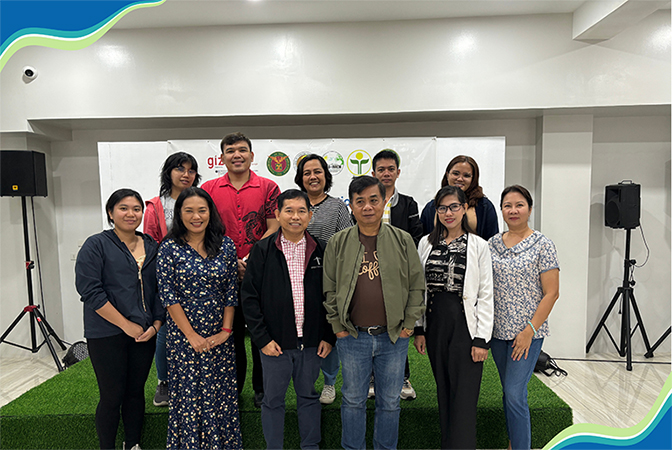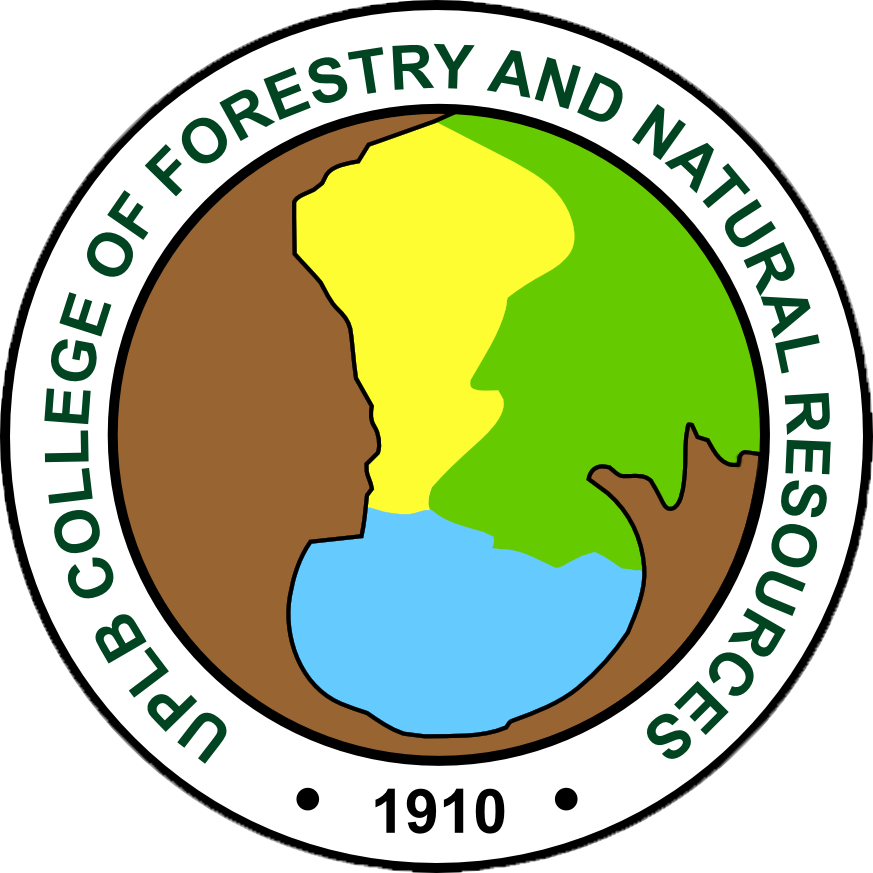
UPLB researchers met with local government agencies and community members in Tuguegarao City, Cagayan, from Feb. 8 to 9, 2024, as part of a new project on improving climate resiliency in communities.
Titled “Modelling CIS Application in the Agriculture and Fisheries Sector Through Tripartite Collaborations (SUC-NGA-LGU) in Region II, Northern Philippines,” the project is led by the UPLB Interdisciplinary Studies Center for Integrated Natural Resources and Environment Management (UPLB-INREM) in partnership with Isabela State University (ISU). It is funded by Deutsche Gesellschaft für Internationale Zusammenarbeit (GIZ).
The project aims to enhance stakeholders’ understanding of the future impacts of climate change on agriculture and fisheries and to devise effective responses to these impacts. It is part of the initiative “Towards a South-South Collaboration on Climate Information and Services: Building a Knowledge Exchange and Learning Platform for the Philippines and the Climate Vulnerable Forum” under GIZ.
The first day of the kick-off meeting had 82 participants from around 30 institutions in Cagayan, Isabela, and Nueva Vizcaya.
In his welcome remarks, Dr. Ricmar Aquino, president of ISU, highlighted the impacts of climate change on the Cagayan Valley Region and emphasized the importance of having the appropriate knowledge to confront these challenges. The participants of the project were then duly recognized by Aileen Simondac-Peria, one of the project’s technical staff.
During the kick-off meeting, Denise Ann-Marie Suarez and Rune Raphael Ylade of GIZ introduced the South-South Collaboration on Climate Information Services (SSCIS) Initiative. Ylade explained about Climate Information Services (CIS) and how these can be used to inform decision-making regarding climate change. Suarez, on the other hand, discussed the climate initiatives of the SSCIS project and its components. She also elaborated on the concept of community of practice (CoP) within the context of the agricultural and fisheries sector.
Dr. Juan M. Pulhin, project leader, discussed the vision of the project for the Cagayan Valley Region by contextualizing climate change in the region and validating the project’s focus on slow-onset events and its integration into long-term planning.
He presented the roadmap of the project, its future activities, outputs, and indicators of success. These included the establishment of ISU as a Sub-National Competence Center and the generation of knowledge products for the agricultural sector.
Dr. Roberto B. Figueroa, a project staff member from INREM, supplemented Dr. Pulhin’s presentation by discussing the possibility of using digital platforms, such as Moodle, Facebook, and Discord, to support CoP.
Jonazon Jeff Factora, a planning specialist at the Department of Agriculture (DA) Region II, and Rhodamel Soriano, project leader on organic aquaculture at the Bureau of Fisheries and Aquatic Resources Region II, presented the Climate Risk and Vulnerability Assessment (CRVA) of agriculture and fisheries in the Cagayan Valley region, respectively. Meanwhile, Dr. Orlando Balderama, vice president for Research and Development, Extension, and Training of Isabela State University, presented the CIS initiatives of ISU.
Following the presentations, the project gathered insights from the participants as part of its effort to document the research process and identify the needs of its diverse partner institutions. Various agencies expressed their commitment and support to the project. The responses from local partners and stakeholders also indicated their optimism for the positive outcomes of utilizing CIS.
Dr. Maricel Villamayor, assistant project leader, wrapped up the first day of the meeting with a synthesis wherein she highlighted three main points: the definition of CIS, its importance, and the necessity of tripartite collaboration. She also outlined the upcoming activities of the project, including a needs assessment for the tripartite group, module development, capacity building, and the establishment of a digital platform to support the community of practice.
Dr. Villamayor reflected on the challenges posed by climate change, noting that while the future may seem daunting, understanding past and present assessments of agriculture and fisheries, combined with efforts in CIS and knowledge utilization, can lead to greater climate resilience.
In his closing remarks, Dr. Pulhin underscored the importance of collaboration, impact, and sustainability in implementing the project and emphasized the value of collective learning.
“We come here not to bring much knowledge, but to co-learn with you. Any one of us don’t have the monopoly of knowledge; but if we put our knowledge together, that becomes a very powerful force for us to respond to the challenges brought by climate change,” he said.
Dr. Pulhin expressed optimism for the ongoing collaboration and its potential for meaningful impact in the region. He concluded by affirming his commitment to continued collaboration for lasting positive change.
The second day of the event had an operational planning workshop with seven UPLB-INREM staff and three faculty members from ISU. This workshop marked the commencement of the project’s first phase, during which activities, timelines, deliverables, and administrative matters were discussed in detail.
The planning session included discussions on administrative matters, the schedule for data collection for the needs assessment, and the identification of key content for capacity-building modules. Additionally, the team discussed activities and schedules for the project’s second phase, including capacity building for National Government Agencies (NGAs), Local Government Units (LGUs), and State Universities and Colleges (SUCs); the establishment of the community of practice; modeling the CoP; crafting its sustainability plan; and conducting an agriculture and fisheries outlook.
During the operational planning, it was proposed to launch ISU as the subnational competence center by July 2024. Leading the ISU contingent during the meeting were Dr. Balderama, Engr. Ryan Ancheta and Dr. Mary Joy Asprec. Dr. Pulhin led the UPLB-INREM team, which is composed of Dr. Villamayor; project technical staff members Simondac-Peria, Dr. Figueroa, and Dr. Rose Jane Peras; and research associates Marielle Baliwag and Lyra Mae Puno.
The kick-off meeting was attended by regional offices of DA and its Adaptation and Mitigation Initiative in Agriculture (DA-AMIA) Program, community representatives from AMIA villages, the Bureau of Fisheries and Aquatic Resources, the National Economic and Development Authority, the Department of Environment and Natural Resources – Environmental Management Bureau, and the Agricultural Training Institute Regional Training Center.
The Provincial, Municipal, and City Government Units of Cagayan, Isabela, Nueva Vizcaya, and Quirino, Tuguegarao, Cauayan, Ilagan, and Santiago were also represented at the meeting by the Provincial Planning and Development Office, Disaster Risk Reduction and Management Offices, agriculture offices, Provincial Environment and Natural Resources Offices, and City Environment and Natural Resources Offices. (Aileen Simondac-Peria, Lyra Mae Puno, Marielle Baliwag)
